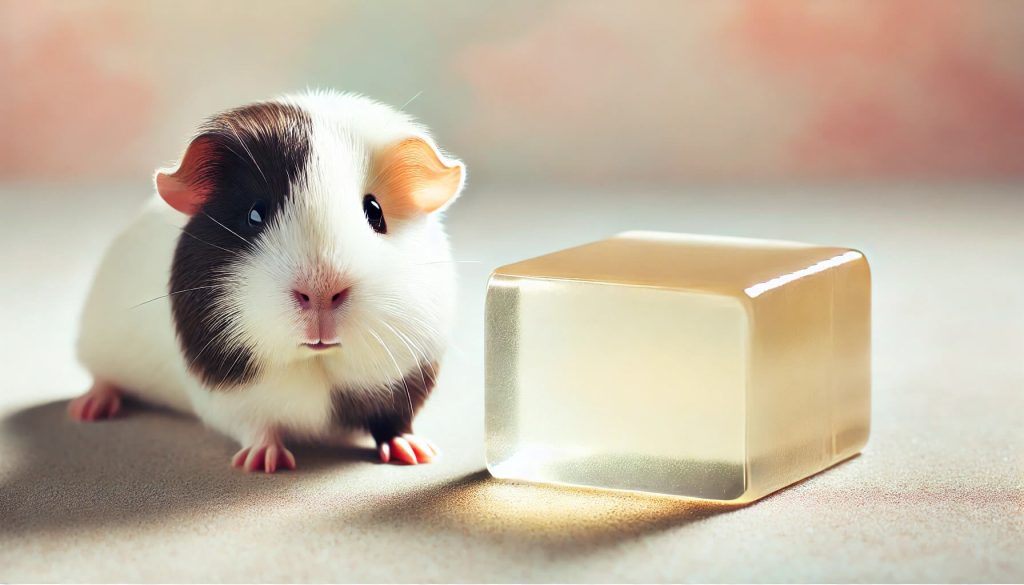
Can Guinea Pigs Eat Gelatin?
Understanding Gelatin: Composition and Sources
Gelatin is a popular food ingredient often used in various desserts and snacks. It’s essential to comprehend its composition and sources when considering it for pet consumption.
What Is Gelatin Made Of?
Gelatin derives mainly from collagen, a protein found in animal connective tissues. The extraction process involves boiling the skin, bones, and ligaments of animals like pigs, cows, and fish. This procedure breaks down the collagen into gelatin, resulting in a product that gels when dissolved in hot water and cooled. These properties make gelatin a staple in many culinary applications.
Common Sources of Gelatin
Most commercial gelatin on the market comes from the following sources:
- Pork By-products: Derived from pig skin and bones, this are the most common source.
- Bovine By-products: Sourced from cow hides and bones, often found in beef-based gelatin products.
- Fish By-products: Used in kosher or halal gelatin, made from fish skins and bones.
- Vegetarian Alternatives: Though not true gelatin, agar-agar and pectin replicate gelatin’s texture and are plant-based. These alternatives cater to dietary restrictions but are distinct from traditional animal-derived gelatin.
Understanding these sources are crucial to determining if gelatin aligns with your guinea pig’s dietary needs.
Dietary Needs of Guinea Pigs
Understanding the dietary needs of guinea pigs ensures their well-being and longevity. Their nutritional intake directly affects their health and quality of life.
Essential Nutrients for Guinea Pigs
Vitamin C
Guinea pigs can’t synthesize their own Vitamin C, making it a crucial part of their diet. Fresh vegetables like bell peppers and leafy greens, such as kale, provide dietary Vitamin C.
Fiber
High fiber content keeps their digestive system functioning well. Quality hay, like Timothy hay, should be available at all times, aiding dental health by wearing down their teeth.
Calcium
Calcium in moderate amounts ensures proper bone and teeth development. Too much, however, can cause bladder stones; leafy greens like romaine lettuce and herbs like cilantro are good sources.
Proteins and Carbohydrates
A balanced guinea pig diet includes necessary proteins and carbohydrates found in commercial guinea pig pellets. Select pellets fortified with Vitamin C and free from added sugars and seeds.
Fresh Water
Always provide clean, fresh water. Water bottles with sipper tubes prevent contamination.
Foods to Avoid for Guinea Pigs
High-sugar Foods
Avoid feeding fruits high in sugar, such as bananas and grapes. Excess sugar can lead to obesity and diabetes.
Gaseous Vegetables
Certain vegetables, including onions, potatoes, and cabbage, produce gas and can cause severe bloating or gastrointestinal issues.
Processed Human Food
Human snacks, sweets, and processed foods contain ingredients harmful to guinea pigs. Chocolate, caffeine, and salt-laden snacks should be strictly avoided.
High-calcium Vegetables
Limit vegetables like spinach and parsley, as high calcium levels increase the risk of urinary complications and stones.
Toxic Plants
Many houseplants, such as ivy and lilies, are toxic if ingested by guinea pigs. Ensure their environment is free from toxic flora.
Meeting the dietary needs of guinea pigs with appropriate nutrient sources and avoiding harmful foods keeps them healthy and active.
Can Guinea Pigs Eat Gelatin: The Risks Explained
Guinea pigs should not eat gelatin due to various health concerns. It’s important to understand how gelatin impacts their digestive system and overall health.
Gelatin and Guinea Pig Digestive Health
Guinea pigs have a sensitive digestive system designed for high-fiber diets. Gelatin, primarily made from animal collagen, lacks fiber, making it unsuitable for guinea pigs. High-fiber foods, like hay and leafy greens, support their digestive health, while gelatin can lead to digestive blockages and discomfort.
Potential Health Concerns with Gelatin Consumption
Consuming gelatin presents several health risks for guinea pigs:
- Nutrient Deficiency: Gelatin doesn’t provide essential nutrients like Vitamin C, which guinea pigs need.
- Digestive Issues: Gelatin can cause constipation or blockages because it’s not easily digestible by guinea pigs.
- Weight Gain: The lack of proper nutrients combined with empty calories can lead to unhealthy weight gain.
Ensuring that your guinea pig’s diet aligns with their natural dietary needs fosters better health and well-being.
Alternatives to Gelatin for Guinea Pigs
Gelatin is unsuitable for guinea pigs. Instead, consider alternatives that align with their dietary needs.
Safe Treats for Guinea Pigs
Choose nutritious, natural treats. Fresh vegetables like bell peppers and leafy greens provide essential nutrients and hydration. Bell peppers offer Vitamin C. Leafy greens like romaine lettuce and kale supply fiber.
Fruits in limited quantities make good treats. Small slices of apple, strawberry, and blueberry are safe. Avoid high-sugar intake to prevent obesity. Always remove seeds from fruits.
Herbs are another option. Parsley, cilantro, and basil can be offered occasionally. Ensure they’re washed thoroughly to remove pesticides.
Healthy Diet Practices for Guinea Pigs
A balanced diet is key. High-quality hay like Timothy or Orchard Grass should be the primary food. Hay aids digestion and maintains dental health.
Provide fresh pellets formulated for guinea pigs. Pellets ensure essential vitamins and minerals are available. Choose pellets without added seeds or dried fruits.
Fresh water is crucial. Replace it daily to keep it clean. Use a sipper bottle to avoid contamination.
Vitamin C deficiency is common. Include Vitamin C-rich foods, or supplement with drops. Consult a vet for the correct dosage.
Avoid foods harmful to guinea pigs. These include chocolate, caffeine, onions, garlic, and iceberg lettuce. Stick to foods known to be safe and nutritious to keep your guinea pig healthy.
Conclusion
Ensuring your guinea pig’s diet aligns with their natural needs are crucial for their health. Gelatin lacks essential nutrients and poses risks to their digestive system. Instead, focus on providing safe alternatives like fresh vegetables, limited fruits, and herbs. A balanced diet with high-quality hay, specially formulated pellets, and fresh water is key. Don’t forget to address Vitamin C deficiency and steer clear of harmful foods like chocolate and caffeine. By prioritizing their dietary needs, you’ll help your guinea pig thrive and enjoy a healthy life.
